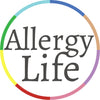Hypersensitivity type may be- Type I Allergy
Immune reactions may be from- IgE
Reactions may occur in- Minutes
Peanuts are a common cause of serious allergic reactions and affects around 3% of children, where even the smallest trace amounts of the protein found in peanuts can lead to serious and life-threatening reactions.
Peanuts are not a Tree Nut (such as Cashews, Pistachios, etc), they are grown underground and are a part of the legume family which encompasses Soy beans, Pulses, Peas, Lentils, etc.
A Peanut Allergy is more likely to develop in children than adults, and peanut allergies are a prime focus in allergy awareness in schools due to its prevalence in children. Around 1 in 5 children may outgrow their peanut allergy by their teenage years, with the status of their peanut allergy being not longer present verified through testing by a qualified health care provider such as an allergist.
There are many foods that use peanuts and they can also be found in oils, cosmetics, shampoos and moisturisers (scroll below to see some common places it can be found in).
PEANUTS are one of the 10 most common food allergens in Australia, that all together account for 90% of food allergies in Australia.

SYMPTOMS
Some of the symptoms may be characterised by:
- Stomach Ache
- Vomiting
- Runny nose
- Indigestion
- Itchy eyes
- Diarrhea
- Wheezing
- Dizziness
- Confusion
- Shortness of breath, difficulty breathing
- Repetitive cough
- Tightness in throat, hoarse voice
- Weak pulse
- Pale skin
- Hives
- Swelling, can affect the tongue and/or lips
- Asthma aggravation
- ANAPHYLAXIS
The validity and severity of these symptoms are dependent on the individual and the level of exposure, as determined by a qualified health care provider.
TREATMENT
If you experience or are in the presence of someone who encounters a serious reaction (this may include difficulty breathing, wheezing, throat tightening, swelling, collapse, etc), follow their action plan or emergency instructions and call or have someone call Triple Zero (000) immediately.
Adrenaline (Epinephrine) is the first-line treatment for Anaphylaxis. After administering Adrenaline (Epinephrine), seek emergency medical attention by calling Triple Zero (000) for an ambulance.
If you are unsure what to do, call Triple Zero (000).
If you or someone you know is suspected of having an allergy, it’s important to discuss diagnosis, symptoms and treatment with a qualified health care provider to understand how to manage individual allergies and also to set up an Allergy Action Plan in the case of a reaction.
Always present your Allergy Card, Medical Alert Bracelet, Action Plan or Necklace to ensure health care providers, family members, friends, colleagues and others are aware of your Allergies.
TESTING
A skin prick test, blood test or food challenge may be used to test for a Peanut Allergy.
LABELLING
Some labels or terms you may come across on Peanut Allergy friendly products:
"Peanut Free" "No Peanuts"


RANDOM ALLERGY FACT
Kitty litter, logs, fire kindling, packing material, and even compost are made from Peanut shells.
WHERE YOU MAY COME ACROSS PEANUTS
The below is not a complete list, but just some of the places you may come across Peanuts:
- Glazes
- Baked goods
- Granola bars
- Energy bars
- Fruit bars
- Cake icing
- Candy
- Icing
- Cereals
- Oil
- Arachis oil
- Macaroons
- Chili con carne
- Marzipan
- Chinese foods
- Curries
- Nut Meat
- Nougat
- Chocolate bars
- Pastries
- Commercial desserts
- Peanut popcorn
- Cookies
- Potato chips
- Desserts
- Soup mixes
- Salad dressings
- Satay sauce
- Egg rolls
- Thai food
- Fried foods
- Vegetarian meat substitutes
- Fried snack foods
- Mixed nuts with peanuts
- Peanut oil
- Peanut butter
- Peanut sauce
- Peanut flour
- Peanut soup
- Peanutamide
- Peanut meal
- Sodium Peanutate
- Szechuan sauce
- Valencias
- Almond and hazelnut pastes
- Cosmetics
- Shampoos
- Moisturisers
The information provided on Allergy Life Australia is to generally educate and inform you about living with allergies, intolerances and conditions, and is not intended as medical instruction or as a substitute for diagnosis, examination and advice by a qualified health care provider.




